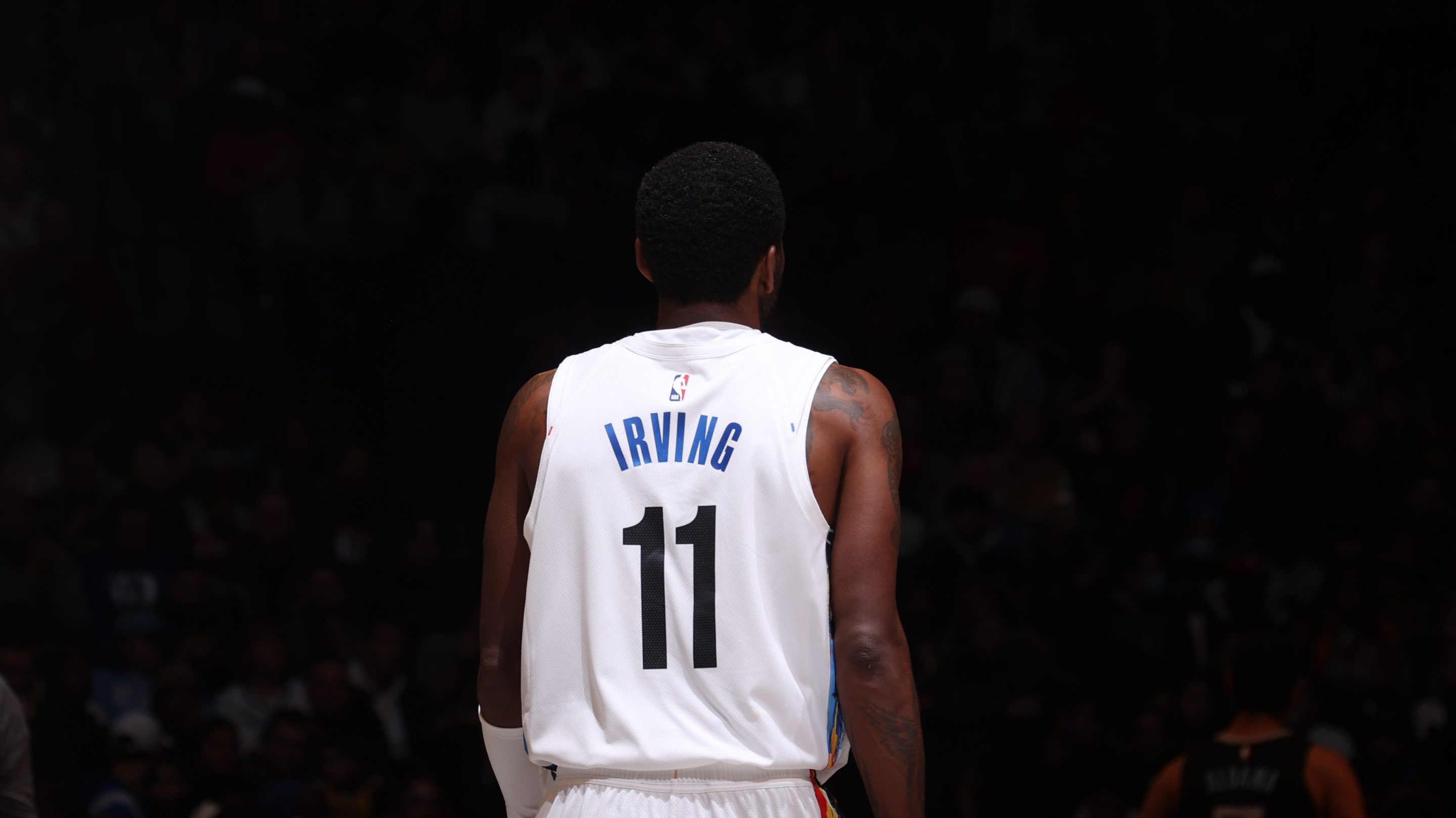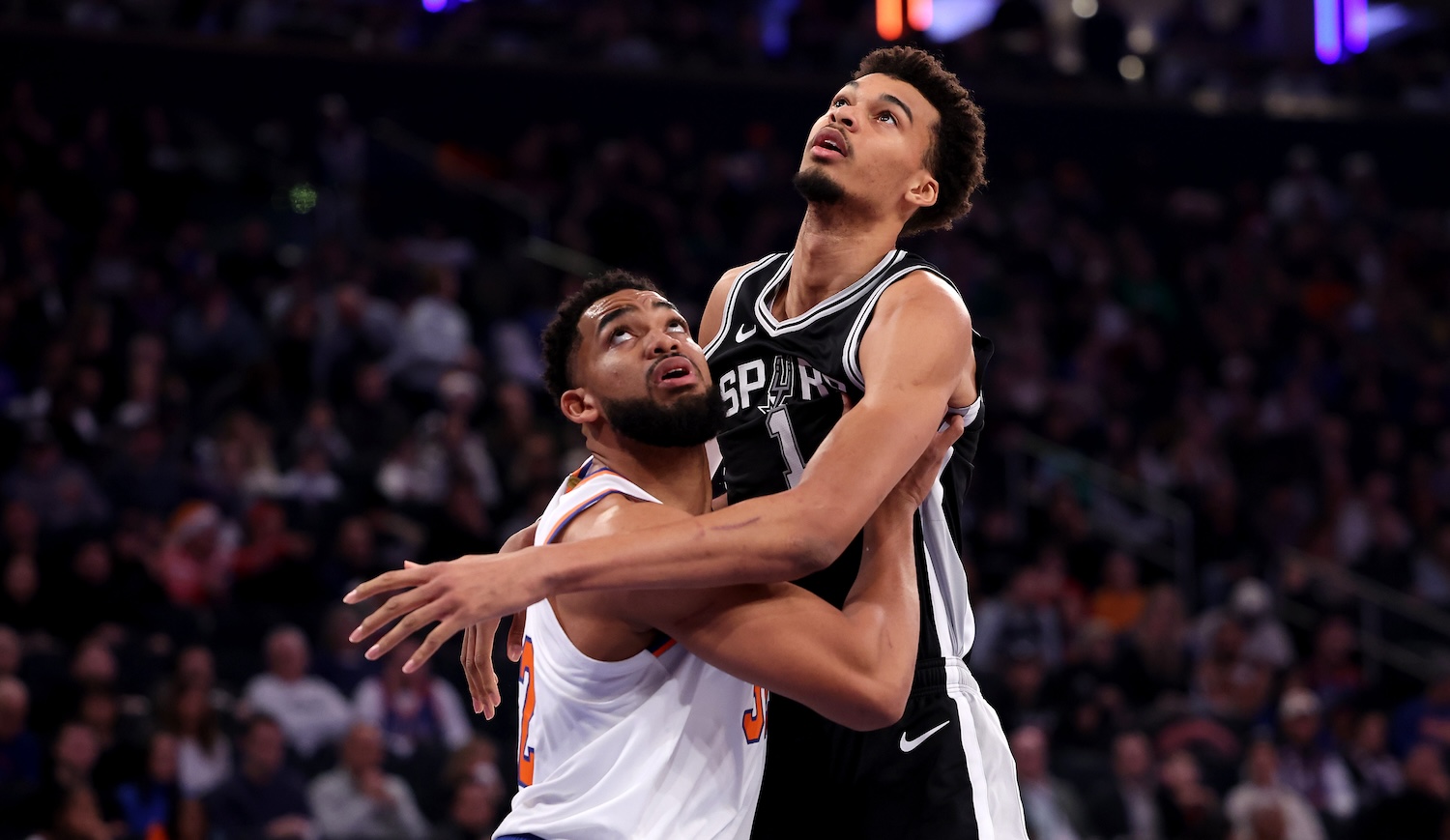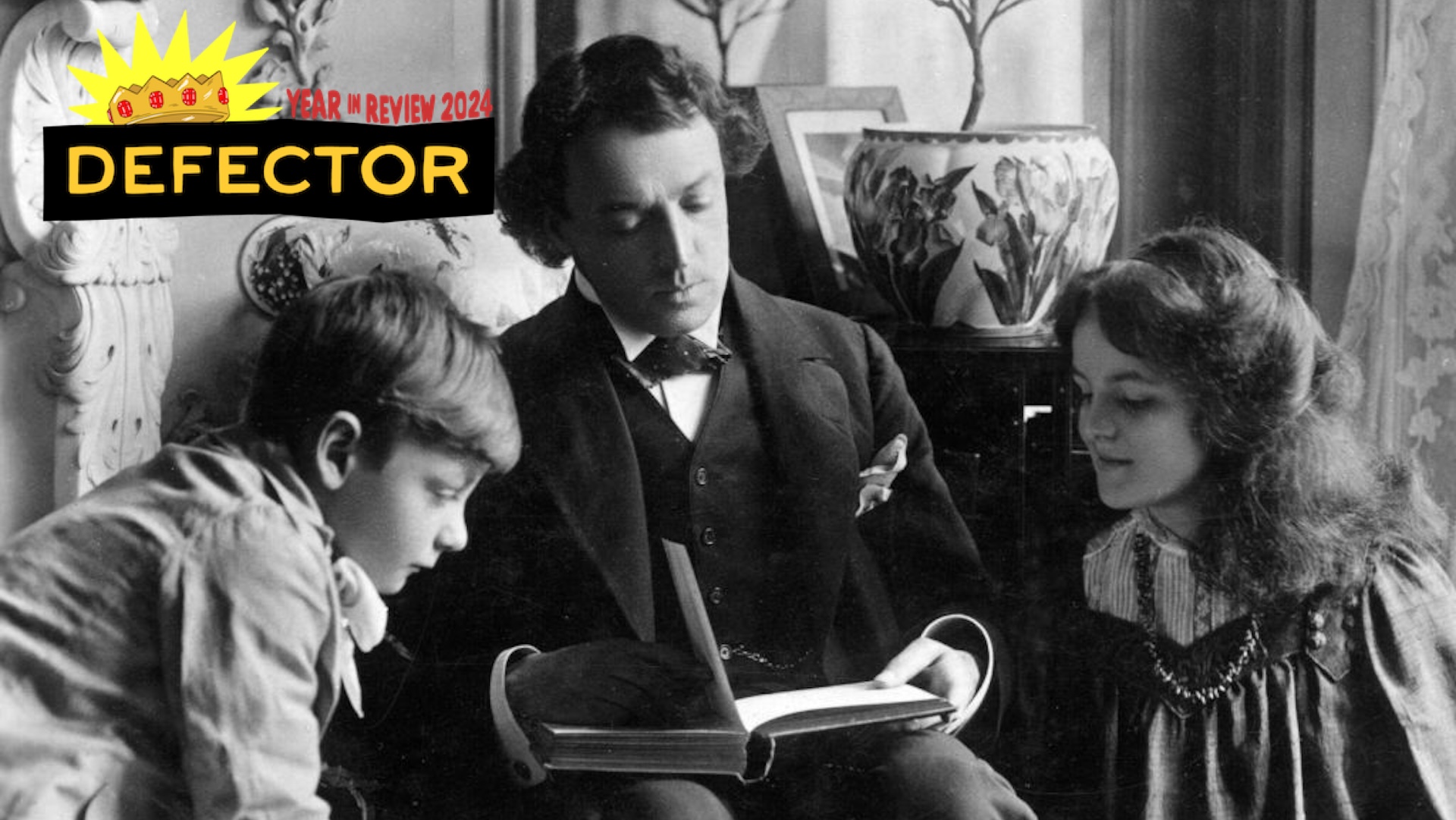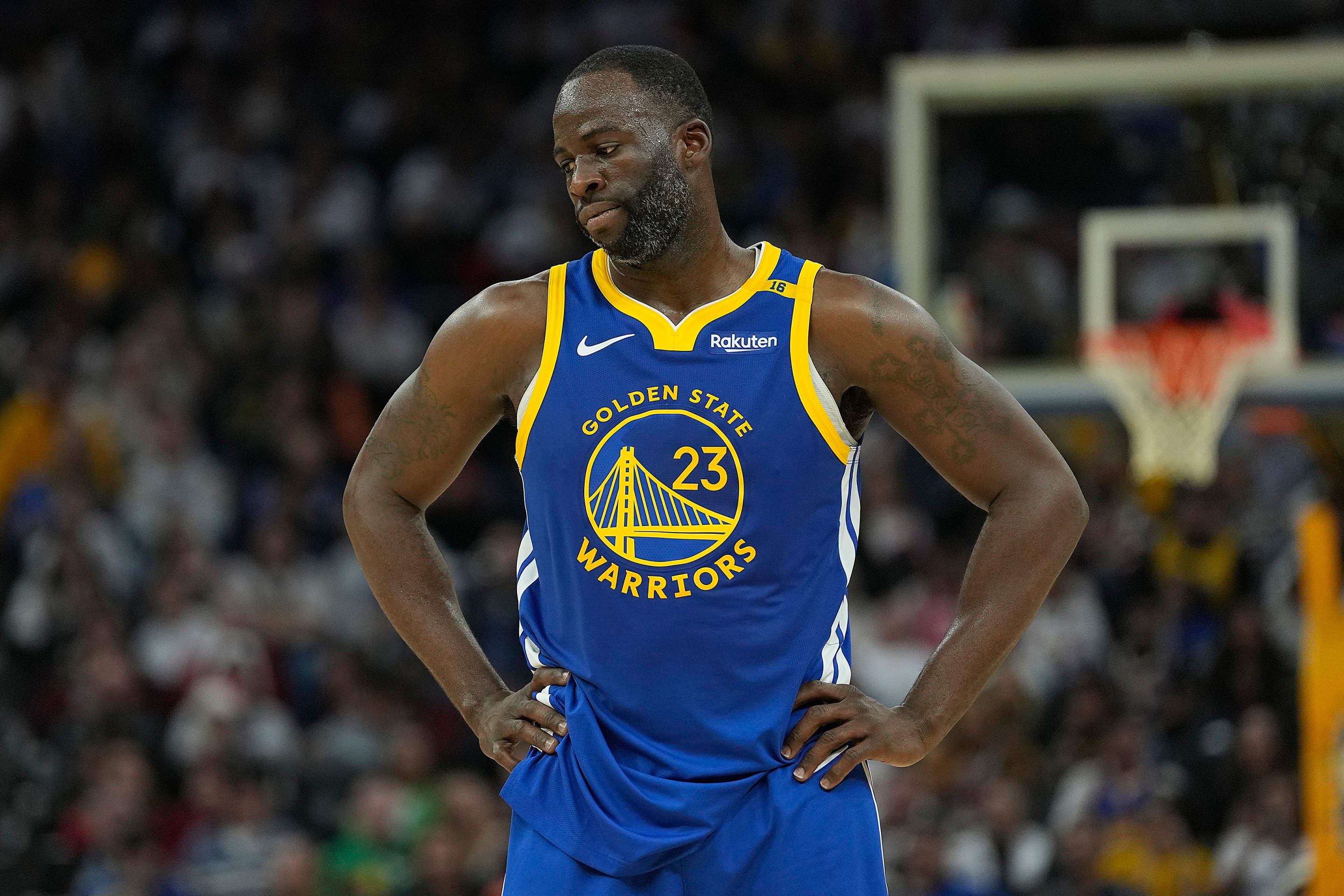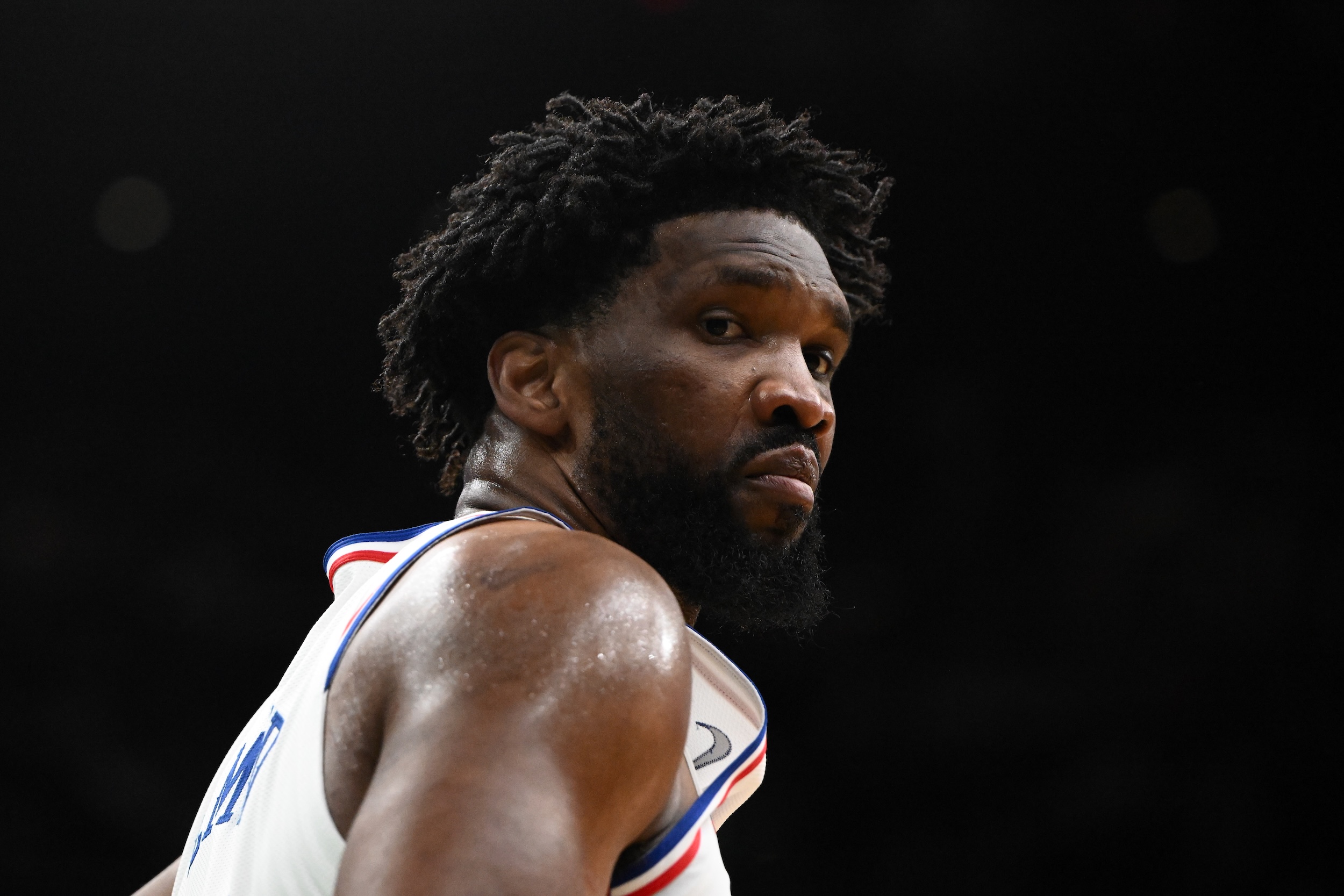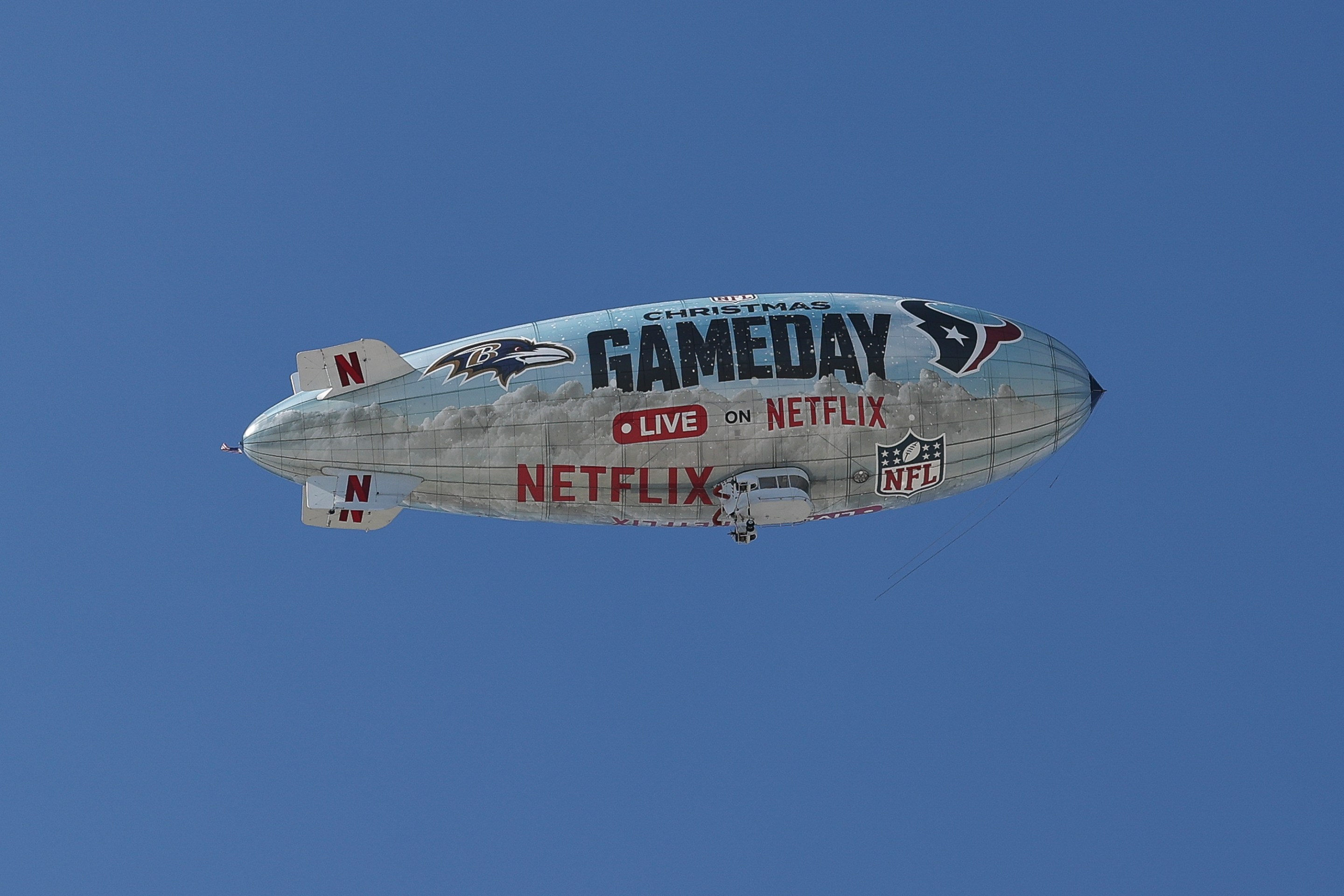It was clear, days before the official announcement, that Kyrie Irving would be coming back to the Brooklyn Nets sooner than later. First, NBA commissioner Adam Silver proclaimed in The New York Times that he did not believe Irving was antisemitic. The following day, Nets team owner Joseph Tsai chimed in to say that he too believed that Irving was not antisemitic. Next came the report from NBA insider Adrian Wojnarowski of ESPN that Irving could return for the Sunday game against the Memphis Grizzlies; Irving was listed as questionable for the game, giving the impression that unless something happened, he could be good to go. All that was left to do was the emotional sit-down apology interview. This being New York basketball, the sit down was with Ian Begley at SportsNet New York, in which the Nets point guard offered a lengthy and well-crafted apology for sharing with 4 million social media followers an antisemitic documentary that quoted noted antisemite Henry Ford, made up a quote from Adolf Hitler, and said that the Holocaust was a lie manufactured in pursuit of power.
By Sunday, with all those boxes checked, Irving was ready to play. His five-game unpaid suspension had turned into eight. What he actually accomplished of the bizarrely long and detailed requirements set out by the Nets for him to return—tasks that included donating $500,00 to anti-hate causes, taking sensitivity training, and meeting with Jewish leaders—was never clarified and, anyway, never really the point. (There had been chatter about the players union possibly filing a grievance about Irving's suspension and that to-do list, and they would have had a good argument. But grievances create precedents, and precedents become rules, and at some point all involved realized that a quiet resolution, as opposed to the creation of The Kyrie Irving Rules, was in everyone's best interest.) The point of the list, in retrospect, feels like a mix of the Nets 1) reminding Irving that they are in charge and 2) trying to make all the bad articles stop.
And so Irving suited up. The broadcast crew seemed as though they wanted to talk about literally anything but the Irving situation, and they stuck to sports—except for the "quote of the day, brought to you by your local Kia dealers," which came from the team and said that Irving had taken ownership of his journey, held conversations with the Jewish community, and "we are pleased that he is going about the process is a meaningful way." The Nets stuck to basketball and beat a depleted Grizzlies team by 12, with Irving scoring 14 points. The fans seemed happy to see him back.
One of the louder cheers you’ll hear during a pregame intro for Kyrie Irving. pic.twitter.com/TELQzkGIVg
— Erik Slater (@erikslater_) November 21, 2022
The league, the team, the fans, and (maybe) Irving himself all seemed more than ready to move on. This is understandable, but the hatred they'd uncorked was not and is not going anywhere.
It was, in fact, marching and chanting and churning away right outside the arena. None of that made the joyful YES network broadcast, which was identifiably and even willfully a normal early season NBA game—the dancers, the silly pre-recorded spots with players, a broadcast crew noting that, oh wow, Ellen Pompeo was at the game, and some mostly incidental basketball. Off camera and outside, members of Israel United In Christ had gathered en masse in purple and gold. This was not a coincidence. The film that Irving shared on Twitter took its talking points from the radical factions of the Black Hebrew Israelites; the people in the purple and gold T-shirts that showed up to support Irving do, too.
Just as white, antisemitic Christians do not represent all of Christianity, the extremist factions of BHI do not represent the entirety of the BHI community, and certainly do not represent all black people—most especially black Jews. The media and the culture's old racist reflexes make that kind of conflation all too easy to make, but antisemitism's roots are in the white Christianity of Europe, just like the roots of racism and the slave trade, and that should never be ignored. As Vanderbilt professor Michael Eric Dyson put it recently in the Times: "No one who has heard the Black Hebrew Israelites on big-city street corners with megaphones in hand can deny the racial trauma they cantankerously amplify or ignore the Black suffering, from slavery to the present day, from which they desperately seek relief. Nor can we overlook the hateful sentiments and relentless stream of antisemitic rhetoric that fall obscenely from their lips."
To an observer not familiar with BHI, the bright colors and coordinated chanting outside the arena could look like something it was not. One such observer was Irving's fellow NBPA vice president, Jaylen Brown, who quote-tweeted video of the chanting on Twitter with the caption "energy." (Brown later took to Twitter to say he had mistaken the BHI protestors for members of the Omega Psi Phi fraternity, whose colors are also purple and gold. He even tweeted out photos to prove his point, and added that he was not wearing his reading glasses when he first saw the video.)
Amid that pageantry, though, was once again some very pointed antisemitism. Times reporter Sopan Deb grabbed a copy of a flyer being handed out by the group. There's a lot going on here, but my eyes immediately went to the lower third, where the flyer notes that Jews like me are "the synagogue of Satan." ESPN's Jamal Collier reported that the group also handed out flyers headlined "The Truth About Slavery."
This is the brochure being handed out by these supporters. https://t.co/bya1Gq9AgJ pic.twitter.com/3c26a7FoY7
— Sopan Deb (@SopanDeb) November 20, 2022
When asked about the flyers after the game, Irving said, "I think that's a conversation for another day. I'm just here to focus on the game."
Antisemitism is much bigger, so much bigger, than BHI. They are just the example that happened to be in front of the arena that day. Antisemitism, which was birthed and constructed in the white Christianity of Europe, dates back to well before the Middle Ages and while the rhetoric and imagery changes—the Jews are blamed for different things in this century than they were in the last—the outcomes tend to repeat themselves in a cycle of expulsion, forced conversion, pogroms, and death. This is there in the expulsion of Jews from England, for which the Church of England apologized approximately 800 years later, and in the expulsion of Jews from Spain in 1492, for which Spain is also trying to make amends more than 500 years later. The Catholic Church did not officially declare that Jews did not kill Jesus, a fabrication behind such noxious falsehoods as the blood libel (whose gory details I once had repeated back to me in a small restaurant when the waitress learned that my grandmother and I were Jewish) until 1965.
As it always has, antisemitism has found new ways of spreading today. Irving's social media post happened in the same month that the artist formerly known as Kanye West, now going by Ye, announced on Twitter that "I'm going death con 3 On JEWISH PEOPLE." This happened just a few weeks before voters went to the polls in Pennsylvania with two choices for governor: the Democratic nominee, Josh Shapiro, who is Jewish, and the Republican nominee, Doug Mastriano, who repeatedly used Shapiro's Judaism to attack him and send out antisemitic dog whistles; Mastriano portrayed Hebrew day schools as "elite" and said that Shapiro sending his children to one showed his "disdain for people like us." A senior advisor to Mastriano's campaign said Shapiro was "at best a secular Jew," while the candidate's wife suggested Shapiro was a bad Jew because, she said, she and her husband loved Israel more than him.
Shapiro won that election by a lot. But good luck trying to track how many conservative politicians trot out conspiracy theories about George Soros (and notably not the many other non-Jewish billionaires who also use their wealth to try and influence American politics). Late last week, police arrested two white supremacists who planned to attack a New York City synagogue. And just before that, Donald Trump, who has his own long history of peddling in antisemitic tropes, announced that he would run for president again. Elon Musk let Ye back onto Twitter, and then liked Ye's first tweet, which read "Shalom :)".
At some point, everyone involved with the NBA and the Brooklyn Nets realized that the best possible resolution to the trouble that Irving started was to fire it into the memory hole as fast and decisively as possible. Perhaps people would not forgive Irving, but they might forget somewhat once those headlines were pushed down the page by others about basketball. This isn't surprising when you remember what the NBA is—a multibillion-dollar entertainment corporation whose main purpose is making billions for its owners, who then pay millions of dollars to a handful of employees and far less to their other employees. For all its brand positioning as something "bigger than basketball," the NBA cannot be anything but what it is, which is less an association of franchises than a corporation. You do not need me to tell you that corporations will not save anyone from anything.
Irving's failures did not happen in a vacuum, and the failures that followed were abetted by various powerful people and institutions within that broader basketball economy. No screw-up this massive could have only one author, and if Irving still seems not to understand the magnitude of what he did, almost nobody else in the NBA has behaved as if they do, either. There was Tsai, the Nets team owner, who, according to reporting by Wojnarowski and Ramona Shelburne at ESPN, communicated with Irving via text message and then later through his agent and stepmother; Tsai could have easily gone to the arena, found Irving, and talked to him right there, but didn't. Someone from the league office could have done that as well; the Nets arena sits above a transit hub easily accessible from the NBA's Manhattan offices by numerous subway lines. The Nets brought in the Anti-Defamation League and announced that the team and Irving would each donate $500,000 to the ADL, despite Irving never having talked to the ADL. There was, at every turn, the sense of all parties involved trying to figure out the absolute least they could do.
(A necessary side note: Irving has used his platform in the past to show support for Palestinians amid the state-sanctioned violence inflicted by Israel. ADL CEO Jonathan A. Greenblatt has used his platform to malign pro-Palestine groups, comparing them to right-wing extremists. The ADL condemned the Amnesty International report on apartheid in Israel, saying it would spark antisemitism, but the apartheid happening in Israel is a fact that has been confirmed by multiple human rights organizations, including the 14 Israeli human rights organizations that came out in support of the Amnesty report; acknowledging that is not antisemitic. And the ADL, on its very website, wrongly conflates criticism of Israel with antisemitism. Given Irving's stated stance, it's fair to say the ADL was not the right organization to bring in here.)
The documentary that Irving boosted online is still up on Amazon, which has shown no sign of even adding a disclaimer. Even if one were added, it would be just one tiny fix in the largely unmonitored world of self-publishing and self-uploading. Back in 2020, The Wall Street Journal reported that Amazon's video library carried "thousands of conspiracy-theory videos, amateur productions and short instructional clips." The Journal more recently spoke to the film's director, who made getting the antisemitic film on Amazon sound really easy. He told the paper that he put it on the site in 2018, using an option that allows filmmakers to upload their own work, whereupon it passed a content review process and became available for anyone to watch around the world. On Monday, Variety reported that Amazon's lack of action was not due to a lack of meetings. The massive platform has had many of those about what to do, the outlet reported, including some with "top brass." It has yet to actually do anything. Andrew Wallenstein wrote that Amazon probably won't do anything because the company "won’t want to be seen as elevating a book and film that was almost entirely ignored prior to Irving’s tweet to the kind of stature '[Mein] Kampf' has."
Antisemitism never flourishes alone, and the problem is never just antisemitism. It is a part of a perverse intellectual ecosystem, and grows alongside other symbiotic idiocies; the result is a network of villains and shortcuts, a whole constellation of parties to blame. Look no further than Trump or Mastriano to see how that looks; their antisemitism is of a piece with their equally casual racism and transphobia and ableism. All the forms of oppression in our society all serve to prop each other up. Though antisemitism has changed over the centuries, its purpose remains the same. It is a lie used to uphold the various load-bearing systems of oppression that keep things the way they are, and that work to subvert any sort of unity from forming between oppressed people. That is the constant.
"Racism is like a millstone, a crushing weight that relentlessly presses down on people intended to be a permanent underclass. Its purpose is to press profit from us, right to the edge of extermination and beyond," the Puerto Rican and Jewish author Aurora Levins Morales wrote. "The oppression of Jews is a conjuring trick, a pressure valve, a shunt that redirects the rage of working people away from the 1 percent a hidden mechanism, a set up that works through misdirection, that uses privilege to hide the gear."
The work, then, now, and always, is realizing that this is all intertwined, and that true liberation can only be achieved together, and for everyone. As I type those words, I feel like a kid in Hebrew school again, my hand in the air with the answer to a Torah question. In Judaism, we read Torah over and over again, the same stories every year, trying to find new meanings from the same yarns. As a child, I couldn't understand this. Why were we so repetitive? How many times must I hear about the same people? The same mistakes? Aren't the rabbis bored of this by now? Being older and wiser, I see now why we repeat those stories. Because even when the answers are right in front of our faces—it is only together that we can collectively end our oppression and create a better world—we all still struggle to learn the proper lessons. At every level, the stories haven't changed.
On Sunday, the Nets got Irving back. And in the days that followed, you could say the NBA got back to business. The games were, once again, about basketball. Outside the arena, it never was and never will be that simple. Out there is where the real work will be done.
